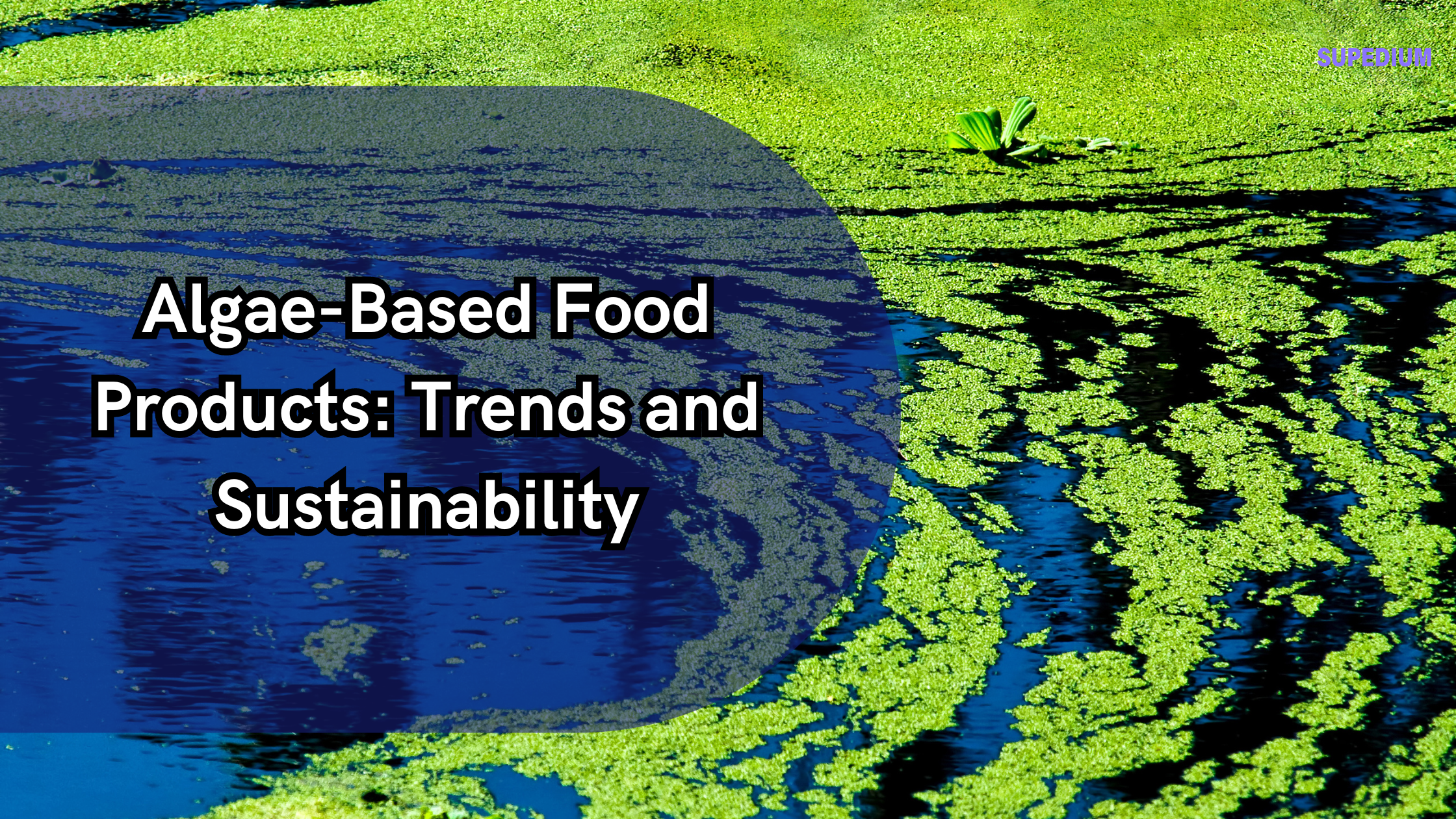Table of Contents
![]()
Introduction
Algae-based food products are gaining prominence as sustainable and nutritious alternatives to traditional food sources. These products utilize various types of algae—both microalgae and macroalgae—and have been integrated into a diverse range of food items, from dietary supplements to snacks. As global interest in sustainable food systems increases, algae-based products are emerging as a viable solution to some of the pressing issues related to food security and environmental sustainability.
Trends in Algae-Based Food Products
Market Growth and Consumer Demand
The market for algae-based food products has experienced substantial growth in recent years. This surge is driven by increasing consumer awareness of health and environmental issues, leading to a higher demand for sustainable food options. According to recent market reports, the algae-based food industry is expanding rapidly, with projections indicating continued growth as more consumers seek alternatives to traditional protein sources and processed foods.
Innovations and Product Development
Innovation is a key factor propelling the algae-based food market forward. New product categories are continuously emerging, including algae-based snacks, supplements, and functional foods. Advances in algae cultivation and processing technologies are also contributing to this growth. For example, improvements in algae farming techniques, such as vertical farming and closed-loop systems, are enhancing production efficiency and product quality.
Geographic Trends
The adoption and consumption of algae-based food products vary by region. Countries such as Japan, South Korea, and China have long histories of incorporating algae into their diets, with products like nori and kombu being staples in these cuisines. In contrast, Western markets are seeing a gradual increase in interest, driven by health-conscious consumers and innovative food startups.
Nutritional and Health Benefits
Nutritional Profile of Algae
Algae are renowned for their impressive nutritional profiles. They are rich in proteins, essential amino acids, vitamins (such as B12 and A), minerals (including iron and calcium), and omega-3 fatty acids. For instance, spirulina, a type of microalgae, is known for its high protein content and is considered one of the most nutrient-dense foods available. Seaweeds like kelp and wakame also provide valuable nutrients while being low in calories.
Health Benefits
The health benefits of algae-based foods are substantial. Algae are associated with various positive effects, such as improved cardiovascular health, enhanced immune function, and better management of cholesterol levels. Additionally, algae-based supplements are gaining recognition for their role in addressing nutritional deficiencies, particularly for those following vegan or vegetarian diets, as they offer a plant-based source of vitamin B12 and omega-3 fatty acids.
Sustainability of Algae-Based Food Products
Environmental Impact
Algae cultivation is considered more environmentally sustainable compared to traditional agriculture. Algae grow rapidly and require minimal land and water resources. Unlike conventional crops, they can be cultivated in various environments, including saltwater and non-arable land, reducing competition with food crops. Moreover, algae absorb carbon dioxide during their growth, contributing to greenhouse gas mitigation.
Economic Sustainability
The economic viability of algae-based food products is improving, with decreasing production costs and increasing market demand. Algae farming presents opportunities for economic development, particularly in coastal and rural areas where algae cultivation can create jobs and stimulate local economies. However, the cost of advanced processing technologies remains a challenge that needs addressing to ensure broader market adoption.
Social and Ethical Considerations
Social and ethical considerations are integral to the sustainability of algae-based food products. Ensuring fair trade practices and ethical sourcing is crucial as the industry expands. Additionally, involving local communities in algae farming projects can foster positive social impacts and support sustainable livelihoods.
Challenges and Barriers
Technical and Production Challenges
Despite its potential, the algae-based food industry faces several technical challenges. Cultivation and harvesting methods need to be refined to ensure consistency and efficiency. Processing algae into food products also presents difficulties, such as maintaining product quality and managing potential contaminants.
Market Acceptance and Consumer Perceptions
Consumer acceptance is another hurdle. While the nutritional benefits are well-documented, taste and texture issues can deter some consumers. Overcoming these barriers requires innovative product development and effective marketing strategies to educate consumers about the benefits and versatility of algae-based foods.
Regulatory and Safety Issues
Regulatory and safety concerns must also be addressed. Ensuring compliance with food safety standards and regulations is essential for consumer confidence. Additionally, the potential for allergens and contaminants in algae-based products necessitates rigorous testing and quality control measures.
Future Outlook and Opportunities
Emerging Research and Development
The future of algae-based food products is promising, with ongoing research exploring new strains of algae and cultivation methods. Innovations in algae biotechnology and processing could lead to novel applications and expanded product offerings. These advancements hold the potential to further integrate algae into mainstream food systems.
Policy and Industry Support
Support from policymakers and industry stakeholders is vital for the growth of the algae-based food sector. Government incentives, subsidies, and industry collaborations can help accelerate development and adoption. Encouraging investment in research and infrastructure will also contribute to the industry’s long-term success.
Long-Term Sustainability Goals
Aligning algae-based food products with global sustainability goals is crucial. By addressing challenges related to environmental impact, economic viability, and social equity, the algae-based food sector can play a significant role in creating a more sustainable and resilient global food system.
Conclusion
Algae-based food products represent a promising solution to some of the major challenges facing the global food system. With their impressive nutritional benefits and environmental sustainability, these products are well-positioned to meet the growing demand for sustainable food sources. As the industry continues to evolve, addressing technical, market, and regulatory challenges will be key to unlocking the full potential of algae-based foods and ensuring their successful integration into mainstream diets.
Share This





Be the first to comment